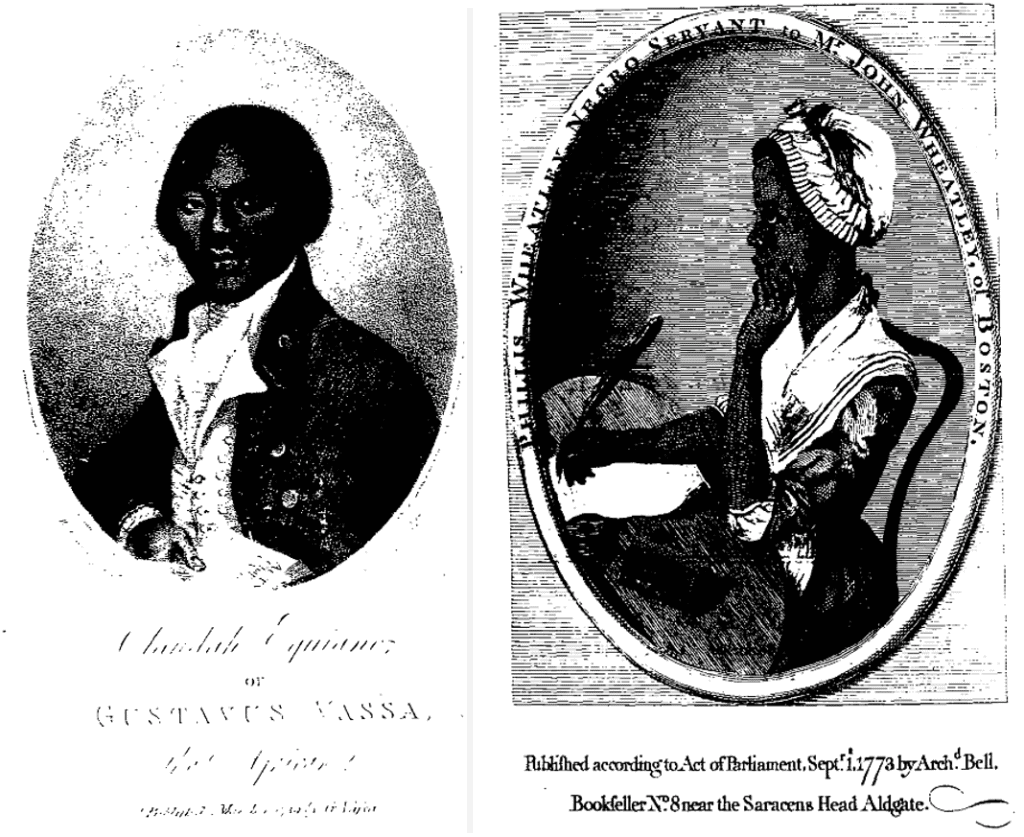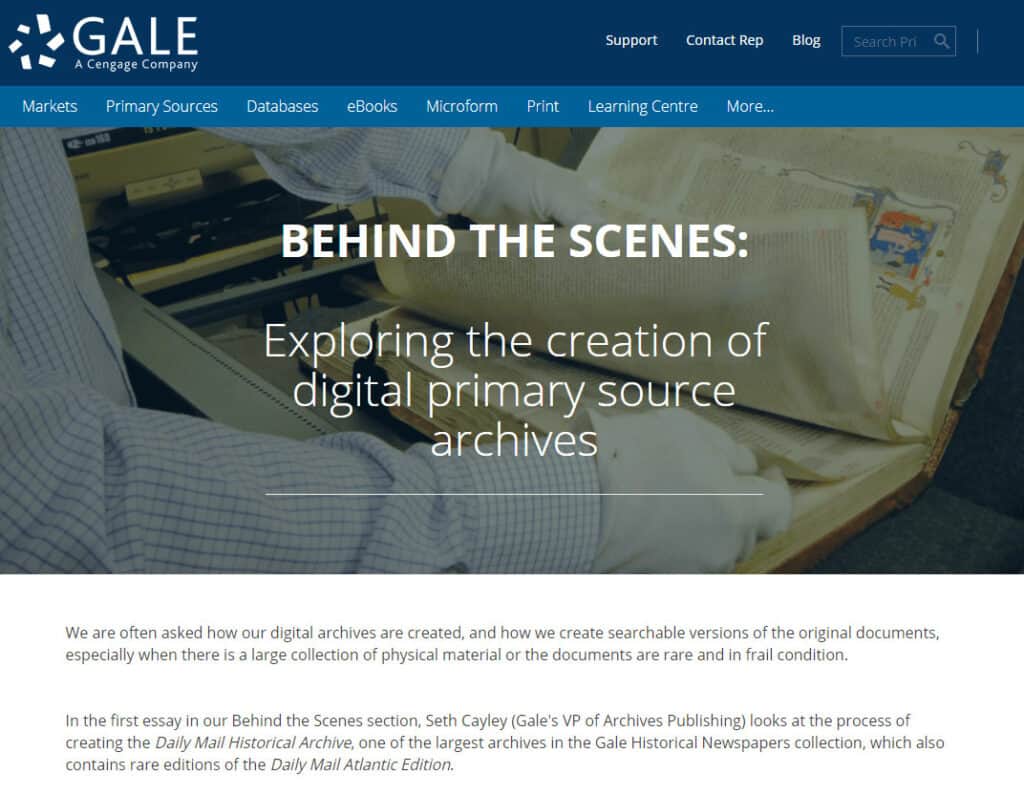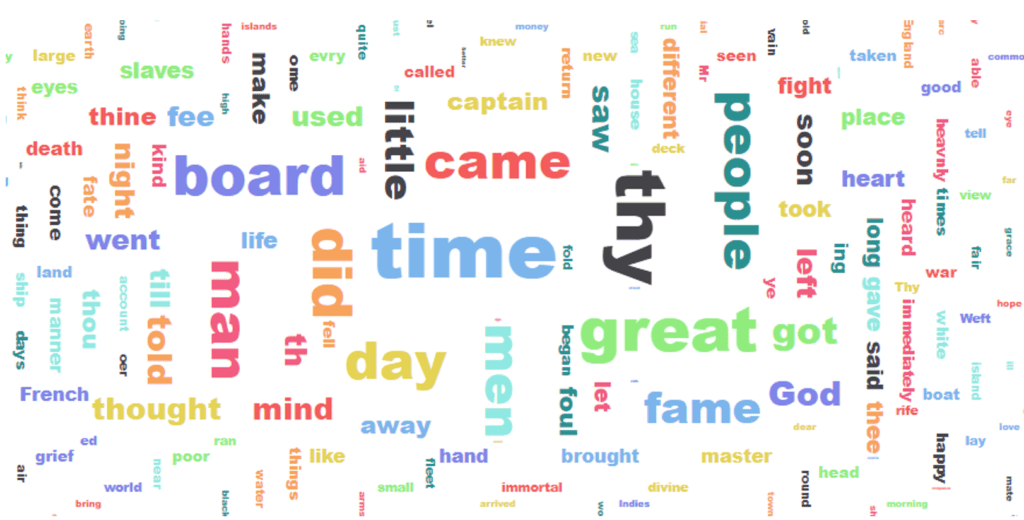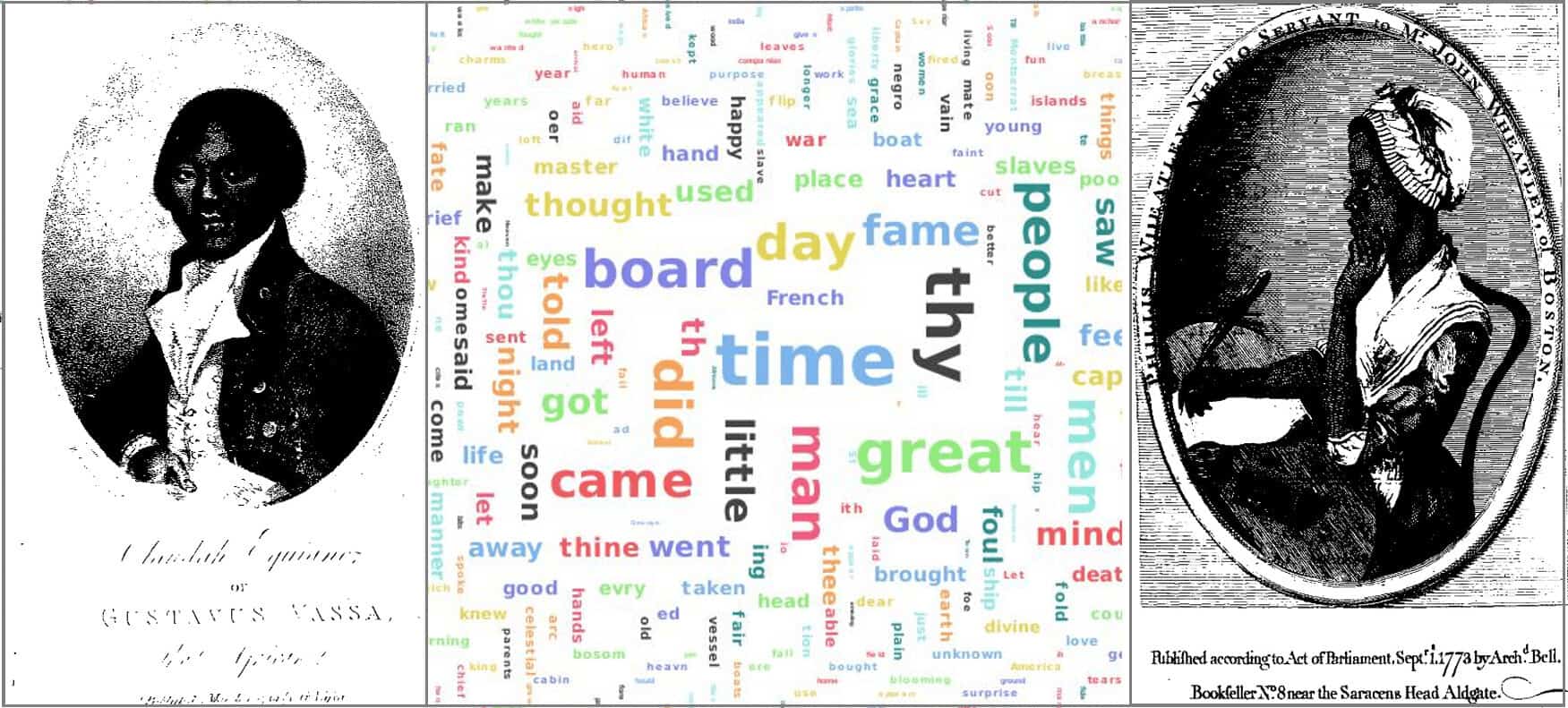│By Chris Houghton, Head of Digital Scholarship, Gale International│
Gale recently worked with Newcastle University to incorporate Gale Digital Scholar Lab into an English Literature module for second-year undergraduate students. In this blog post you can learn why Newcastle decided to introduce the Gale Digital Scholar Lab at this stage, how it was received by students, and the positive impact it had on learning outcomes via deepening students’ engagement with Gale Primary Sources.
The Gale Digital Scholar Lab helps students work remotely
The Gale Digital Scholar Lab has become increasingly popular since its launch in 2018, and has a significant, and expanding, global installation base. In that time, it has become apparent that, as well as viewing it as a research tool, many institutions are looking to the Lab to help them introduce digital humanities concepts and research methods to a wider audience, including undergraduates and postgraduates. If anything, experiences during COVID have accelerated this, with institutions keen to provide the opportunity to develop transferable analytical skills by working with a tool that can be used remotely and in partnership with other students.
The second-year undergraduate module “Writing New Worlds 1688-1789”
Gale worked with Newcastle University in the UK to incorporate the Gale Digital Scholar Lab into a second-year undergraduate module in the school of English Literature, Language and Linguistics called “Writing New Worlds 1688-1789”. As Dr Leanne Stokoe, one of the lecturers on the module, explained, “the module is trying to uncover different voices – we look at women writers, people of colour, working class writers – that don’t immediately spring to mind when you think about Isaac Newton and the Enlightenment. It’s all about getting students to challenge what they think when they think about the eighteenth century and understand it’s rarely like preconceptions at all”.
Generating keywords and what they can reveal
Having seen a demonstration of the Lab, Dr Stokoe was “really struck by the overlap between what it can be used for and what we’re getting the students to do with their close reading skills”. It was decided that the Gale Digital Scholar Lab would be used towards the end of the module to support the students in writing a Keyword Essay, one of the formative assessments. By using the Lab, students could self-generate a list of keywords that would then form the basis for their research into two set texts, Phillis Wheatley’s On Being Brought from Africa to America (1773) and Olaudah Equiano’s The Interesting Narrative (1789).

Right: Wheatley, Phillis. Poems on various subjects, religious and moral. By Phillis Wheatley, negro servant to Mr. John Wheatley, of Boston, in New England. … [1773]. Eighteenth Century Collections Online, https://link.gale.com/apps/doc/CW0111593426/GDCS?u=webdemo&sid=bookmark-GDCS&xid=da2310e5&pg=1 [this is the same text as On Being Brought from Africa to America].
Dr James Harriman-Smith, the module leader, said, “in previous years we would tend to do this in a much more guided way with the students. In seminars, we’d talk about what kind of keywords would you give to this text or in this passage specifically. We’d be a bit more directed in helping them discover other texts, to find ways of illustrating the keywords”.
Dr Stokoe expanded on one of the challenges they have encountered with this assessment in the past, “we are noticing when marking those essays that they tend to go to the OED (Oxford English Dictionary) as their first port of call – if they’re citing oppression or liberty, the first thing they do is go to the dictionary. They should be reading some secondary sources, seeing relevant secondary criticism as a way to define the period”. For her, “using Gale Digital Scholar Lab in conjunction with their research skills might steer them away from that a little bit because it’s actually revealing things about the text, rather than just speaking very generally about the keywords.”
In preparation for the workshop, students were asked to watch introductory videos to the Gale Digital Scholar Lab and read materials about the creation of digital archives, highlighting the need to think critically when using them.

Students were then given an exercise to build a small Content Set in the Lab using either the set texts or a selection of documents of their choice. Following this, they were asked to apply a simple Topic Modelling tool and an Ngram analysis to the Content Set that they had created. This example would then be used in the workshop to explain the processes in the Lab and discuss the outputs of their analyses, including using them to generate a list of keywords for their texts.

The Gale Digital Scholar Lab gives students autonomy
For Dr Harriman-Smith, one of the advantages of using the Lab in the module was the autonomy it gave to students, “now, because of Gale Digital Scholar Lab we were able to get them to find their own keywords – that’s particularly helpful because one of the interesting ways of working with keywords is that they were writing on one of the choices of six keywords as an assessment for this module. But an interesting way of thinking about a keyword is what terms occur with it, or which ones occur near it, or is there a network of terms around that specific keyword? Some of the best work was thinking in those terms.”
According to Dr Stokoe, many in the class appreciated “the way that you could use [the Gale Digital Scholar Lab] from very general to specific, that you could be looking for specific keywords and how those keywords re-occur across different texts, as well as quantitative aspects – just literally counting how many times that word appeared in a text field. We did that with Wheatley, when we were interested in the amount of religious rhetoric there was, and that says a lot qualitatively about how much she has been influenced by her Quaker owners, how she’s been moulded and indoctrinated by Western values. There is a quite an interesting overlap between numbers and words and qualitative and quantitative data.”
The positive influence of the Gale Digital Scholar Lab on student outcomes is explained by Dr Harriman-Smith: “certainly some of the essays I marked drew from a wide range of materials, for example, wider than I’ve seen in previous years, to discuss when they were writing on a text to do with slavery”. Dr Stokoe continues, “I was surprised by how many questions we got about it… they wanted to know more about it, some of them are already thinking about careers in that area”.
Increased use of digital archives
There are already plans to increase the involvement of the Gale Digital Scholar Lab in the “Writing New Worlds” module next year and expanding it to other modules. As well as exposing students to new and exciting research methods and opening up new viewpoints on texts, using the Lab in the classroom significantly increased use of digital archives at Newcastle by engaging students with the texts in completely new way and exposing them to other archives available through the library.
To download the full Case Study about Newcastle University’s use of the Gale Digital Scholar Lab, click here.
If you enjoyed reading about how the Gale Digital Scholar Lab has be used in the classroom, you may like:

